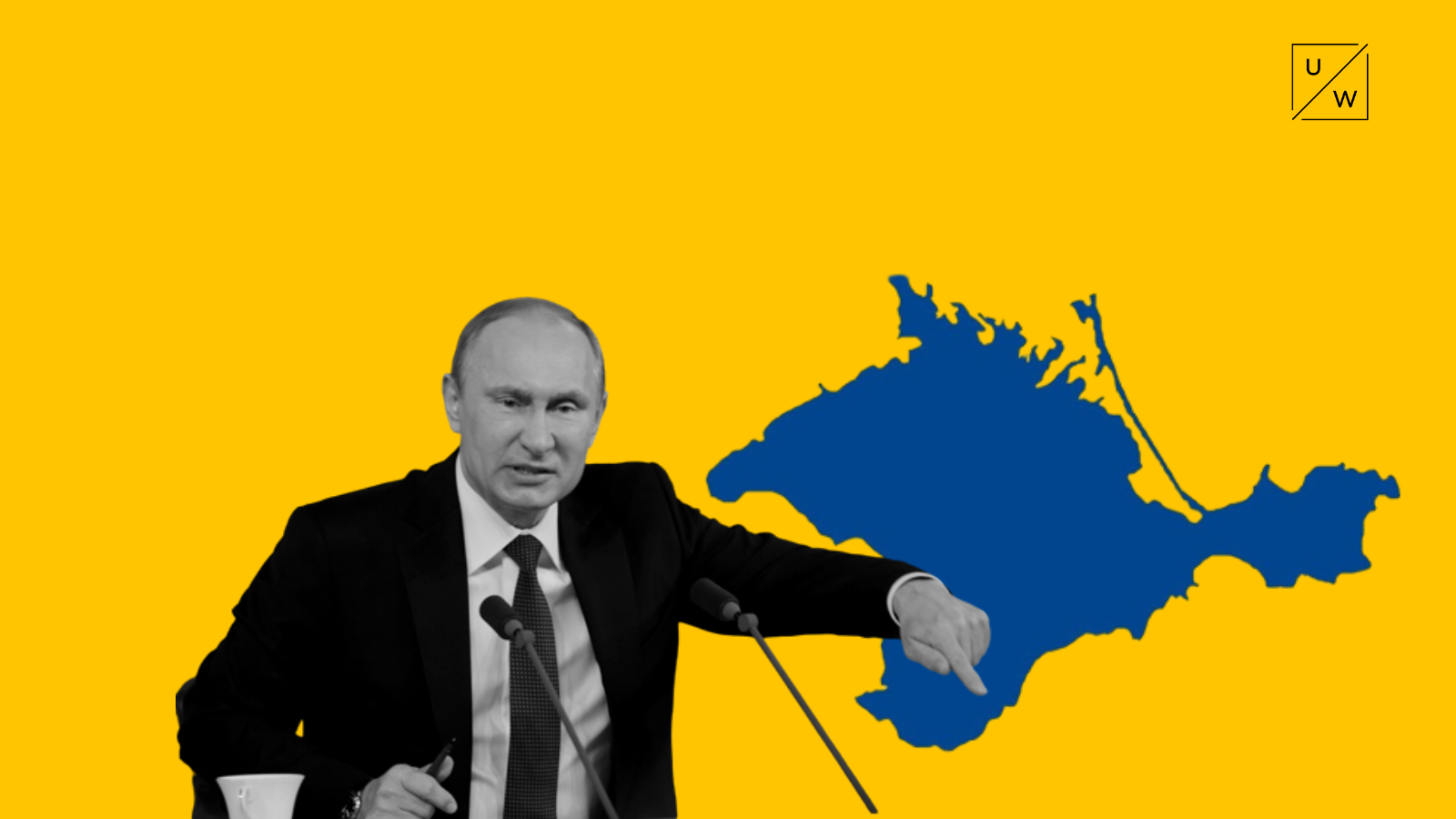UkraineWorld spoke to Mariia Tomak, Head of the Crimea Platform Department at the Mission of the President of Ukraine in Crimea.
South of Ukraine under the Russian occupation: what is the human rights situation? Key points — in our brief, #UkraineWorldAnalysis:
1. On the role of Crimea in the Russian occupation of Kherson region
- Russia is using Crimean peninsula, which has been occupied since 2014, as a staging ground for the offensive against Ukrainian Armed Forces in the southern regions of Ukraine;
- The Russian occupying administration in the Kherson region is suffering a staff shortage because of the reluctance of Ukrainians to collaborate with the invaders. To ensure the work of the occupying administration, Russia is largely using administrative resources and logistic capabilities of the occupied Crimea;
- Russia is exploiting school teachers from the occupied Crimea to implement the policy of Russification of Ukrainian children in Kherson schools. Many Ukrainian teachers were dismissed because they refused to undergo "retraining" and collaborate with the invaders;
Russian "journalists" from the occupied Crimea have been used by Russia to provide media coverage of the Russian occupation of Kherson region as "liberation";
- Russia is using occupied territories to seize new territories, as it is shown by the example of Crimea and parts of the Donbas region, which were occupied in 2014 and are now used by Russia for further expansion. If Ukraine makes any concessions in exchange for "peace", it will only provoke further Russian expansion. Therefore, the collective West should not pressure Ukraine into making those compromises.
2. On the human rights violations in the occupied Kherson region and Crimea
- According to the data provided by the Prosecutor's office in the Kherson region as of end June, 408 Ukrainins living in the Kherson region have either been kidnapped by Russians or are missing. 259 of them have already been released, but 149 are still held captive without charges or trial. Many people released of captivity report of torture;
- 148 Ukrainians have been imprisoned for political reasons by the Russian occupying administration in the occupied Crimea, lots of them were illegally transferred to Russia; 105 of them are representatives of the indigenous people of Crimea - Crimean Tatars that have been specifically targeted by the occupying forces since 2014;
- Russia is resorting to filtration on the administrative border line between mainland Ukraine and Crimea, during which Ukrainians undergo interrogations and humiliating body examinations. Many people disappear after the "filtration" process — their fate is unknown, as is the exact number of those who disappeared;
- Occupiers are forcibly displacing Ukrainians from the newly occupied regions of Ukraine to Russia. The exact number of deported Ukrainians is unknown,there are no independent monitoring mechanisms to track that process, which makes it complicated to design and implement policies to return displaced Ukrainians back to Ukraine;
- The occupying administration is trying to issue Russian passports to Ukrainian citizens in the newly occupied territories. At the same time, the occupiers have created conditions under which obtaining a Russian passport is a matter of survival for many Ukrainians, since people who refuse to obtain Russian passport are deprived of any humanitarian aid amid an overall humanitarian crisis;
- There is a risk that Ukrainians in the occupied territories who have obtained Russian passports will be mobilized to the Russian army to fight against Ukraine. In the meantime, hidden mobilization is being carried out in the occupied Crimea, resulting in the dispatch of dozens of Ukrainian citizens from Crimea to the frontline as cannon fodder.
3. On the possibility of Russian annexation of the Kherson region
- Russia is planning to hold a "referendum" in the occupied Kherson region in early September; however, it might be held even earlier;
By holding a "referendum", Russia is going to give some symbolic legitimation to the attempted annexation of the Kherson region, as it did in Crimea;
- Russia is going to use the results of the "referendum" for propaganda purposes in the international arena, including at the UN; it does not mean, however, that anyone will believe or acknowledge those results.
- Russia hopes that it will retain control over the Kherson region and that the West sooner or later will de facto accept Russian attempted annexation, returning back to "business as usual", as it did after the occupation of Crimea and part of the Donbas region in 2014.
4. Ukrainian resistance in the occupied Kherson region and Crimea
- There have been some 100 registered antiwar actions in Crimea since the start of the Russian full-scale invasion. People have been detained or fined for attacking administrative buildings with Molotov cocktails, beating Russian soldiers, damaging private cars with the Russian pro-war Z-symbol, spreading anti-war leaflets, or even having manicure in the colors of a Ukrainian flag;
- Some anti-war Crimeans have left the peninsula because of pressure, intimidation or prosecution by the occupation administration or pro-war locals. Others are leaving Crimea because of fear that Ukraine will destroy the Crimean bridge and they will not be able to leave when the war spreads to the peninsula;
- There is a strong Ukrainian resistance movement in occupied Kherson region. Ukrainian partisans have been attacking Russian troops, blowing up cars of the leaders of the Russian occupation administration, spreading pro-Ukrainian leaflets, and more.
This material was prepared with financial support from the International Renaissance Foundation.

